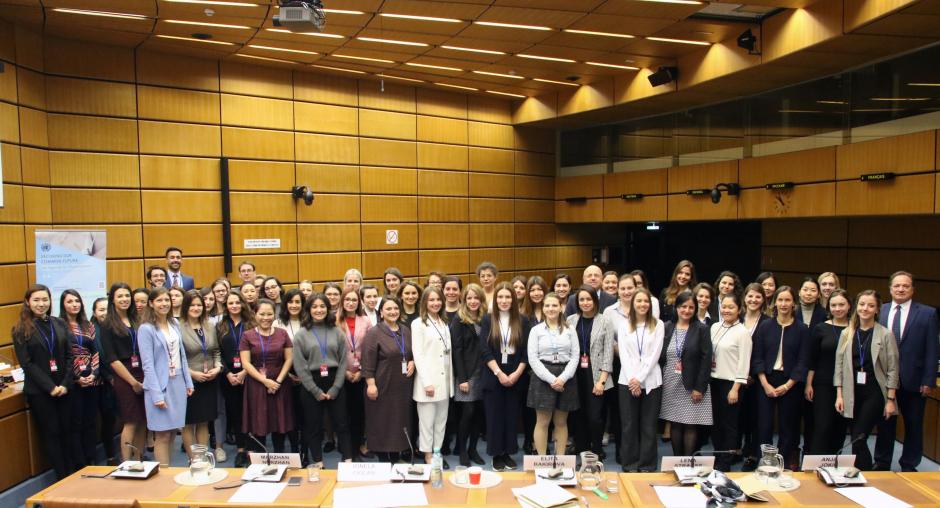OSCE and UNODA train 50 young female professionals on arms control, disarmament and non-proliferation

A training course jointly organized by the OSCE and UNODA on arms control, disarmament and non-proliferation was held for 50 young female professionals from the OSCE’s participating States and Partners for Co-operation from 6 to 10 May 2019 in Vienna. The course was held as part of the OSCE Scholarship for Peace and Security.
The training course aimed to contribute to a deeper understanding among the participants of the key conceptual and analytical issues in conflict prevention and confidence- and security-building with a specific focus on the OSCE. The course also aimed at improving the knowledge of and increasing women’s participation in policy-making, planning and implementation processes in the areas of arms control, disarmament and non-proliferation. Importantly, the course is designed to build up a network of young professionals and bridge the gap between education, training and career opportunities.
“I was highly motivated to apply my expertise, experience as well as education and insights from the discussions among the participants of this course,” said course participant Lena Strauss from Germany.
Throughout the week, participants learned about the different institutions active in the field of arms control, disarmament and non-proliferation.
They also learnt about emerging technologies, gender perspectives and the relationship between disarmament and development. Issues such as the concept of co-operative and indivisible security, political versus legal commitments, the importance of political will, and the illicit trafficking of weapons, were also discussed. The participants also engaged in debates on gender equality and explored the different impact disarmament and non-proliferation activities have on women and men, as well as the role women play in the field.
Thuy Nguyen, a course participant from Australia, stated: “Looking at the nexus between emerging technologies and international security excites me - we do need women in critical positions, participating in decision-making processes, able to make a big difference in contributing to peace and security.”
The training in Vienna will be followed by an additional five-week online training course, offering further insight into the inter-related areas of arms control, disarmament and non-proliferation. This part of the course will continue to take into account a gender perspective in order to deepen the participants’ understanding of practices in international security issues and enable them to spread this understanding among their peers.
The training course in Vienna was supported with financial contributions from the governments of Andorra, Germany and Switzerland.
